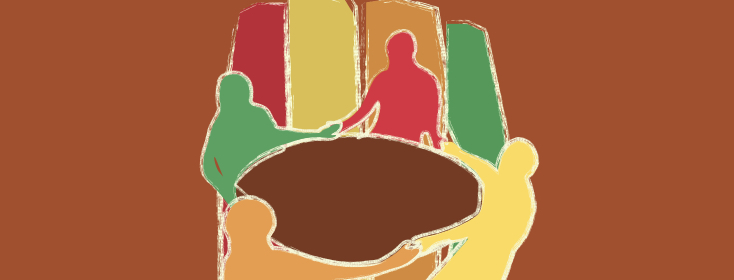Approaching Every Holiday Like It's the Last
I was diagnosed just before Thanksgiving and opted to wait until after Christmas to begin my chemotherapy. Assuming that there was a strong chance it would be my final holiday season, I wanted it to be as normal as possible for my family. It felt important to leave the memory untarnished.
Two years later and two years into my chemotherapy, I had interviewed a fellow patient who just passed his eighth post-diagnosis Christmas but knew his time was coming to an end. We conducted a lengthy video interview for my personal blog, talking about accepting death and the process of dying, and how to face it without fear. It was touching and funny, but, like many things in our existence, it wasn't complete. We planned a follow-up interview to be done after he was taken off chemo and would be facing his final weeks. When we did our initial interview, it was already months later than he expected to be alive. But he had a history of rallying when it looked like his time was up.
After his doctors gave him his last infusion and sent him home, he sent me a message to let me know. We emailed back and forth about scheduling our next discussion -- he called it his "exit interview" -- and planned it for right after Easter. That would have given us just over a week to prepare, but he died on Easter morning.
Holidays mean something different than they used to.
It seems to me that most of my life I have taken holidays for granted. They have been an opportunity to spend time with family and friends; more than a few times, that opportunity was squandered. Sometimes it is simply logistically impossible to be where you want. Sometimes where you think you want to be might not be where you wish you were -- or wish you had been. Cancer has the interesting side effect of putting this into sharp relief. Holidays mean something different than they used to.
Living with cancer for a few years, things begin to feel normal again. That version of normal might have changed from year to year, but expanded treatment options are increasingly allowing even advanced cancer patients to manage their disease as a chronic illness rather than a terminal one. This does not mean, however, that the specter of cancer disappears from their lives. Quite to the contrary, for most metastatic cancer patients, ongoing treatment and monitoring are an unavoidable, indelible part of their lives.
Almost inevitably (barring prolonged remission), treatments change.
Starting a new therapy is like hitting the reset button. It raises uncertainties. It introduces new stresses. It also is a reminder of the fragile nature of our lives -- not merely those of fellow cancer patients, but of everyone. Modern medicine is so effective that we can soldier onward with such a variety of conditions that used to be nearly impossible to live with, but our mortality is expressed in many ways over which medical care has little or no control. We don't often stop to take stock of this fact, to put our lives and the position we hold within our tiny corner of the universe into perspective. But living with cancer, if nothing else, offers this reminder of our mortal coil; troubled as it may be, full of fuss, agitation, or confusion, our delicate existence is made robust through love and our participation in the activities of life.
What matters is being present, taking note, and still trying to positively engage...
And treating our multitude of experiences as though they will never happen again (as indeed most of them never will) serves our living well. Being in the moment preserves the integrity of the memory, creating something lasting and meaningful. While I am glad that I postponed my initial treatment until after that Christmas, I've come to realize that it isn't about being medicated, or looking sick or weak, or even about feeling well enough to eat all those special holiday meals. What matters is being present, taking note, and still trying to positively engage with the world, to really be there as though it won't happen again, to leave an impression that will warm those I love in the future, and hopefully to receive those same warm memories to carry along for myself.
I'm anticipating many more holidays and many more opportunities to engage with those I love. And to make the most of them, I treat each as the final time, the concluding chapter, the last holiday. Then I look ahead to the next.
Editor's Note: We are extremely saddened to say that on October 21, 2018, Jeffrey Poehlmann passed away. Jeffrey’s advocacy efforts and writing continue to reach many. He will be deeply missed.

Join the conversation